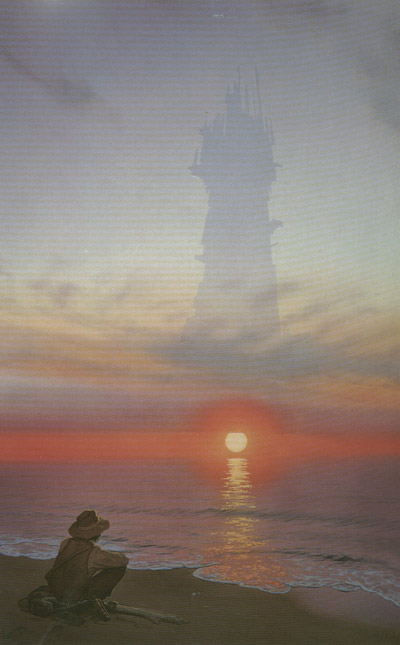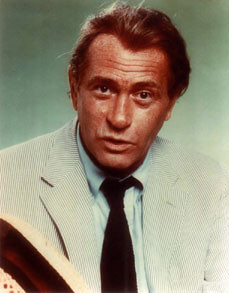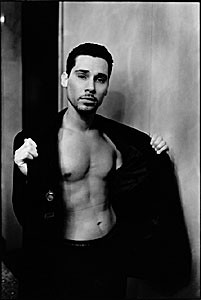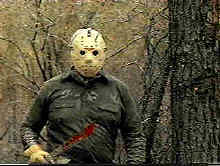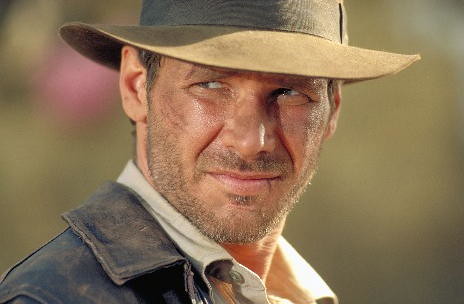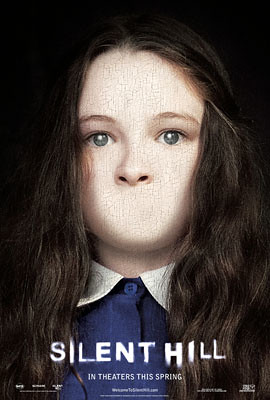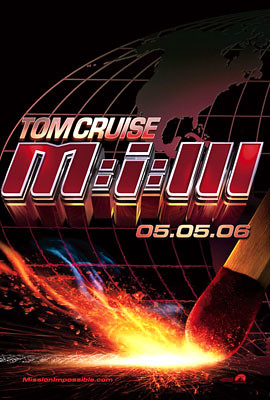(If you haven't read the Dark Tower books, and are planning to do so at some point in your life, you may want to stop here as there are massive spoilers below.)
It is difficult for me to begin writing this, because it hasn’t fully sunk into my brain that I’ve finally completed all seven of Stephen King’s Dark Tower books. There are so many thoughts in my mind, so many things I feel like saying, and the effect of this is tumultuous and renders me speechless.
It was a week ago that I last posted an update on my journey. At that point I had completed King’s fifth entry, Wolves of the Calla, and expressed that though I was fully committed to this saga for the long haul, I felt that there had been a drop in quality between the fifth book and the previous four, or at the very least between the fourth and the fifth –the fourth still remains one of the strongest in my mind. Now that I’ve completed the saga, I no longer feel as certain about passing a judgement on the quality of the last three books. At first, I was dubious about the direction that I saw King veering the story in; it felt unexpected and strange. Books I – IV deal with Roland the gunslinger’s worlds of mid-world, end-world, etc. but not exclusively so. The traveling companions who form his “ka-tet”(or fellowship if it do ya) are “drawn” through magical portals between Roland’s world and New York City at various points in history. It sounds bizarre enough, but somehow King makes it work really well. He’s able to siphon in elements from “the real world” as we know it, through the characters that have been plucked into mid-world/end-world, Eddie, Susannah, and Jake. In the fifth book, King goes a step further with the surreal, by incorporating a character (Father Callahan) from one of his previous books ‘Salem’s Lot, into the Dark Tower. By Book VI, Stephen King has inserted himself into the plot of the sprawling story.
In Book VI, Song of Susannah, Roland and Eddie go on a tower related side mission to Maine circa 1977. It is there that they begin to piece together that Stephen King, who himself is ignorant of this, is their creator. Both confused and terrified by this prospect, Roland and Eddie go to confront King, who has the original manuscript of “The Gunslinger” (Book I) buried somewhere in a box in his basement. The idea is that if King doesn’t dust the book off and continue to write and complete the Dark Tower story, Roland and his world, as well as all worlds, will cease to exist. By Books V, we’ve begun to learn that there are a seemingly infinite number of parallel universes; there is universe where Co-Op City is in the Bronx, and another where it is in Brooklyn. But all of these worlds hinge upon the Dark Tower, and if Roland is not around to save it, then it will fall, and so will all of existence. Stephen King lives in the “keystone world” –the world that seems to be the most “real” –where things happen with a clang of finality, and nothing can be undone.
Confusing stuff I know, but as I was reading about the importance of Stephen King to the Dark Tower, and the reoccurring significance of the year 1999 in the story, I finally began to realize what was at work here. King was gearing up for the climactic and pivotal moment in the series, a moment which occurred in reality on June 19th, 1999, when King was hit by a minivan while on a walk and barely survived. My first response to King’s insertion into the story was that of a grimace and a sigh. I braced myself for some sort of pretentious, egotistical self-referential nonsense. And then, as I began to realize what he was doing here, I realized the simple brilliance of his decision. It was in fact true, that if King had perished from that car accident, Roland’s universe would have been shoved into a horrible limbo. The series would have been left half finished, at the end of Book IV, with Roland and his ka-tet straggling on the borders of end-world forevermore, or worse yet, unable to save the tower, and then unable to save existence. King makes Roland his friends his saviors on that fateful day, and there is a sort of beautiful reciprocity to it. Roland and his friends are able to glimpse into the future and discover that without their help, King would die on the road that day. They must save King from dying on this day or loose their universe. The idea, of a writer’s creations coming alive to save him, so that he in turn as their creator, can save them, is moving.
Now there are all sorts of time-travel type paradoxes and quandaries of logic that crop up with the way King executed things. How is it possible that Roland and Eddie could have gone back to ’77 to convince King to pick up the Gunslinger book and finish off the story? If King had never written the series to begin with, how could they have existed in order to coerce him? And how is it possible that Roland and Jake saved Stephen King in the middle of Book VII, when at that point in time, they (Roland and Jake) were actually still somewhere in the void of story between Books IV and V? But despite these contradictions, King smoothes things over because the idea that he is trying to convey is not necessarily that he created everything (Roland and the rest of ‘em), but that their story is funneled to him through Gan (God), and his job is merely to put it on paper. There is a neat little epilogue at the end of Song of Susannah, where King includes a “Writer’s Journal” of sorts –and he talks about how when he is writing about the Dark Tower, he’s not really thinking, he’s just…flowing. I thought this was a very adept way to fuse together the concept he was trying to sell in the book, with the way that writing actually feels when you’re doing it and it feels right; because one can loose a bit of consciousness and fingers may move with a mind of their own. My initial response that King’s insertion of himself into the story was just a cheap shot changed by the time I completed the books, and I really think King’s inclusion of himself worked well.
Structure and plotting aside, I was completely engrossed by these last two books. It felt as if there wasn’t a moments’ rest, only a fast and furious barreling of event after event and showdown after showdown until the very end. Book VI, Song of Susannah was the shortest installment since Book III, at about 415 pages, and I was able to finish it in about 24 hours. As great as I thought the plot twist of Susannah getting pregnant was, I wasn’t all that crazy about the way that Mia’s character (the mother of the chap which first manifested itself as another of Susannah’s split personalitiss) was reconciled. For a moment there I thought Mia was going to turn out to be Susan Delgado’s spirit who had been trapped in the underworld, dead but still pregnant with Roland’s unborn child. Of course as it turned out Mia had no connection to Susan; she was some sort of disembodied demon elemental type thing that was given human form and I found both her identity and her M.O. to be a little murky and confusing. Nevertheless she served as a great device. The relationship King established between Mia and Susannah was tension fraught yet organic. Surely one of the most horrifying scenes in all the series was the strange dual mother birth scene of Mordred, and the subsequent suckling, which ended in Mia’s death. Mordred. What a terrific name. It is no more than the condensing of the phrase “more dread”, but it has such a great and terrifying ring to it; if ever there was a name that could instill horror by merely being uttered, Mordred is it.
One of my favorite portions of Book VII, was the whole stakeout that Roland and his friends conceived to free the “Breakers” in Algul Siento. King’s description and elaboration of the lifestyle in Algul Siento, and the way he tied into Book V with the twins was elegant. I was completely riveted as the gunslingers took down the Taheen and the Humes, and at long last saved the beams radiating from the Dark Tower, thereby ensuring a large chunk of safety for the universe. Of course, it was also at this point in the novel, where the beloved ka-tet finely broke, and the first of the main characters, Eddie, died. As wary as I might have been at the appearance of Pere Callahan in Book V, I realized just how much I had grown to like him when he died at the beginning of Book VII. I found myself tearing up as I read about his final showdown in the Dixie Pig with the vampires and Taheen. I was sad to see Callahan go, but I was heartbroken about Eddie. If someone would have told me that I would one day read a Stephen King book and be crying through at least a third of the way through it, I would have laughed in their face. Yet, that is exactly what I did in Book VII, The Dark Tower. Over two and a half months, seven books, and almost four thousand pages I spent with these characters, --and to say goodbye to Roland’s ka-tet, Eddie, Jake, Susannah and Oy, was incredibly sad and difficult. I knew at least one of them had to die, and that most likely it was only Roland who would make it to the top of the tower, but all of their individual goodbyes one by one? It was almost too much to bear.
First Eddie was careless and was shot by a Hume. Then Jake, sacrificed himself to save the universe, by pushing King just enough out of the way of the speeding minivan so he would not be struck dead. I was sobbing like a child. For these were my friends too. My traveling companions, and to have to witness the broken hearts of those who remained was almost more painful. Reading those last few chapters where it was just Susannah and Roland and Oy was so sad and yet so dear. They still had each other, and went on through all their despair and exhaustion –for each other. The introduction of the poor, broken-spirited, but immensely talented Patrick the artist, seemed well placed and timed. They needed someone else walking the path with them, who was not carrying the same burden of their grief. Patrick added a nice dynamic to the group, as they broke past the snow and made it to the very last edges of end-world. I felt strangely about the premonitions that Susannah had to leave Roland and go rejoin with Eddie and Jake in some other universe, through another magic door. Part of me wanted her to stay with Roland, if at least to keep him company, and keep the semblance of their ka-tet. Yet I knew she too had to leave; and better that she vanished through a door than have to face a bloody death. Though maybe because of this Susannah’s departure was the most difficult to bear. Most painful because of Roland’s open desperation at her leaving him.
I thought having Mordred finally reveal himself, and charge towards Roland, only to be blindsided by Oy was perfect. As sad and heart wrenching as it was to say goodbye to precious Oy, the billy bumbler, it was so fitting that he died defending Roland. That he died doing exactly what Jake had probably whispered in his ear to do as he lay bleeding to death on the pine nettles in Maine.
And then down to almost the very, very end…. Roland and Patrick slowly making their way to the field of blood red roses, where Roland must met his final obstacle, to entering the Tower. The final battle with the Crimson King was great, still fraught with as much tension as ever, and I love the fact that it was Patrick’s artistry which ended up defeating the King, --not with a sandlewood handled gun, but a nubby pink eraser. And then… then….the Tower was his! The Dark Tower belonged to no one but Roland, and he raced down the path to it calling all of the names of his beloved who had died on the way, I cheered for him with tears streaming down my cheeks, all the while in disbelief the whole saga was at an end.
And it wasn’t. Next came the epilogue. Susannah on the other side of magical door she had dreamt about and made Patrick draw so it could become a reality. A snowy flurry day in New York City’s Central Park of some alternate universe where Nozz-a-la is drank instead of Coke, and Takuro Spirits are driven instead of Honda Civics. Eddie and Jake are brothers, and they somehow know they are supposed to meet Susannah in the park as she comes through the door. But it is not the jubilant reunion it might have been because Eddie and Jake don’t seem to remember her, they know there is a connection between them, and Eddie knows he will come to love this woman, but it is foggy and dreamlike. Not exactly a joyous reunion of the ka-tet. Yet what made me saddest is that even though these three will rebuild new memories with each other, they have forgotten about Roland, and the wonderful, terrible, journey they went on with him. To me this might have been the saddest thing of all.
And yet, it still wasn’t over. There was a second epilogue titled -- “Coda” (or closing). King starts it with a sort of whining warning about how the wise reader should not continue reading on, and simply stop and be content with knowing Roland got to the Tower and Eddie and Susannah and Jake found each other again. Yet he begrudgingly gives us more of an ending, at what I imagine was the strong behest of his editors and publishers.
Roland opens the door to the tower. He begins to climb the stairs madly, finding room upon room filled with memories and objects of the past. The floors and the rooms continue on and on, and he worries that he might never reach the top, that that tower might be an unending spiral. But he does reach the top. At last he goes to grab the doorknob and complete his final mission, his one wish in life, forever.
When he does, Roland’s moment of realization is brief but agonizing. He has done this before. This is what its like every time. The exact gut wrenching thought he thinks is “Oh no! Please, not again! Have pity! Have mercy!“ My veins filled with chilled mercury at the sight of this phrase, and I was chilled to the bone in horror at Roland’s fate. Suddenly Roland is back on the desert –the very same desert where we first meet him, six books ago. Right at the moment where he realizes that reaching the Tower might just be in reach, if he can catch the man in black. Of course this time things are a little different. He has the horn of Eld, the one that he was wishing he had grabbed from Cuthburt on Jericho Hill; the one he wished he had had with him to blow upon exaltedly as he crossed the field of roses, only moments before.
Since I read these last few pages last night, I have been thinking about them, and turning them over and over again in my mind. I have so many thoughts, not only about alternate endings, but questions and confusions. While Roland has been obsessively coveting his ascension of the Dark Tower, he has also had to undertake the noble quest of saving the beams. He had to save the Dark Tower (in its permutation as a rose in keystone New York), in order to save the beams. He also had to scatter the Breakers in order to save the beams, and he had to kill the Crimson King in order to save the Dark Tower too, and on and on. Roland’s quest was much more complex and less self-centered than merely reaching the top room of the dark tower (although it has been his darkest desire). Does this mean that he needs to keep on saving the universes until he learns to resist, and not go up to the top room of the tower? Was it really ever about saving existence at all, or does it simply boil down to Roland and the room at the top of the Dark Tower? And what of the world “moving-on”? How does it tie into Roland’s mind-trap from hell? Why does his world, (and really all worlds) keep coming to the edge of caving in on itself? But I suppose it does no good to keep contemplating all these things. One must merely accept the fact that Roland saved the universe once and he can do it again, and maybe next time he will learn to resist the temptation of the Tower. I suppose trying to get to the room at the top of the Tower is equivalent to trying to see the face of God (or in this case Gan). It is something that no one can do, and only punishment can come of trying.
Ultimately, the thing that fills me with the most regret about the end is all the amnesia that seems to set in on everyone at the end. Eddie and Jake don’t really remember Susannah and all of them will forget Roland, and Roland has forgotten all of them by the time he’s back on the desert trailing the man in black all over again. They shared such a deep and special bond; it seems cruel that it could just evaporate in an instant. I wonder if Roland will keep drawing those three over and over again out of different worlds or if he draws new people every time. It would somehow cheapen their ka-tet, if it was different folks at every turn of ka’s wheel. Truth be told, part of me wanted Roland to walk through the door at the top of that Tower and enter the Clearing at the end of the Path. There he would reunite with Susannah, and Eddie, and Jake and Oy, and Pere Callahan, and Cuthbert, and Alain Johns, and Sheemie, and Susan Delgado, and all have punch and cookies in eternity. But I suppose that would have been too upbeat and sappy for the King of horror. Another part of me wondered what would have happened if Roland had opened the door and stepped out onto the drop at Mejis just before he met Susan Delgado. If given the chance, would he have been able to recapture his true love and youthful heart? But that too I guess falls under the category of too sentimental.
In the author’s note following the Coda, King says that he himself wasn’t crazy about the ending, and yet it was the only ending there was. As foolishly literal as the statement might seem, I find myself in a strange state of agreement with it. The ending to the Dark Tower was the only ending there was.
As King himself admits, these books were not perfect, and there were things I wish had been different, but after all is said and done, I really grew to love them. I journeyed with Roland and his friends for many a day and night, and I am really going to miss that. We were well met, we were very well met.
Roland, may you find your tower, but find some peace this time as well.
